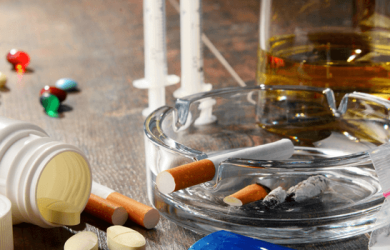The Key Role of Supportive Relationships in Addiction Recovery

Unlock Daily 30-Sec Tips for a Happier Relationship
👉 Subscribe FREEKey Takeaways
Marriage.com AI Quick Summary
Addiction recovery is a challenging journey that often requires more than just willpower; it demands a robust support system.
Data indicates that having support from a family member or significant other upon entering treatment is specifically linked to reduced substance use.
Hence we know that individuals involved in supportive relationships in addiction recovery are more likely to remain in treatment and avoid relapse.
This highlights the critical role that addiction support networks and recovery community involvement play in the healing process.
The presence of supportive relationships in addiction recovery provides emotional sustenance, practical guidance, and the motivational reinforcement necessary to navigate the complexities of recovery.
By delving into how these relationships affect recovery, we can better understand their value in fostering long-term success and overall well-being in individuals overcoming addiction.
How does addiction impact relationships?
Addiction profoundly impacts relationships, often straining the emotional and physical bonds between individuals.
According to studies, addiction can lead to behaviors that erode trust, such as dishonesty and financial instability, thereby complicating supportive relationships in addiction recovery.
However, establishing peer support in rehabilitation and building emotional support for sobriety are crucial for healing. Supportive relationships in addiction recovery play a vital role in providing the stability and encouragement needed to go through the recovery process effectively.
Such relationships not only help in maintaining sobriety but also in rebuilding trust and intimacy within those relationships. [Read the research here](https://www.journalofsubstanceabusetreatment.com/).
How are addiction recovery and relationships connected?
Addiction recovery and relationships are deeply interconnected. Supportive relationships in addiction recovery can provide a foundation of strength and understanding that is critical for overcoming addiction.
Family roles in addiction healing are particularly influential, as family members can offer essential emotional and practical support that builds a safe environment for recovery. Social support systems play a significant role too, offering a network of encouragement and accountability that helps maintain sobriety.
Supportive relationships in addiction recovery can make a monumental difference in the journey, as they provide not just love and encouragement but also the motivation to stay on the path to recovery and the reassurance that one is not alone in this struggle.
Impact unhealthy relationships can have on recovery
One study discovered that during addiction recovery, relapses were frequently triggered by negative psychological issues stemming from family influences.
Unhealthy relationships can significantly hinder the recovery process from addiction. When relationships are marked by stress, conflict, or enabling behaviors, they can exacerbate mental health issues and complicate the path to sobriety.
Supportive relationships in addiction recovery are essential because they provide stability and encouragement, but toxic relationships do the opposite, often triggering relapses or worsening mental health.
Therapeutic relationships in recovery, whether with counselors, therapists, or supportive peers, are crucial as they help replace negative interactions with positive engagement and understanding.
Such relationships provide mental health and addiction help that is tailored to fostering a healthier environment, crucial for anyone working towards recovery. Supportive relationships in addiction recovery aren’t just beneficial; they’re often a necessity.
The importance of healthy relationships during recovery
During recovery from substance abuse, healthy relationships play a pivotal role in ensuring long-term success and well-being. These relationships provide emotional stability, understanding, and positive reinforcement that are essential for overcoming addiction.
Whether through family, friends, or substance abuse support groups, the connections formed during this time can profoundly influence the journey towards sobriety.
- Enhanced support system: Healthy relationships create a network of support that can offer encouragement and advice, making the recovery process less isolating.
- Positive influence: Being around people who model healthy behaviors and attitudes can motivate individuals to maintain their recovery goals.
- Accountability: Relationships with peers in recovery, such as those found in substance abuse support groups, often help maintain accountability, keeping individuals focused on their sobriety.
- Emotional stability: Supportive relationships provide emotional stability and can buffer the stress that often triggers relapse.
- Rehabilitation companionship benefits: Companionship during rehabilitation can lead to better outcomes by offering empathy, shared experiences, and a sense of belonging, all of which are crucial for successful recovery.
7 tips for strengthening relationships while supporting addiction recovery
Supporting a loved one through addiction recovery is as much about strengthening your relationship as it is about aiding their recovery.
Nurturing this bond can help both of you navigate the challenges ahead more effectively. Here are seven tips to help strengthen relationships while supporting a loved one’s journey to recovery.
1. Practice open communication
Open communication builds trust and understanding. Make it a habit to discuss feelings, challenges, and successes regularly. This ensures that both parties can express themselves freely and feel heard, which is essential for a supportive relationship.
According to Maggie Martinez, LCSW:
Sustainable recovery is reinforced by relationships characterized by clear boundaries, consistent communication, and mutual accountability.
2. Educate yourself about addiction
Understanding the complexities of addiction helps you provide better support. Learn about the triggers, challenges, and the recovery process. This knowledge can demystify behaviors related to addiction, fostering patience and empathy in the relationship.
3. Attend support meetings together
Participating in support groups or therapy sessions together can deepen your understanding of each other’s experiences. It also shows your commitment to the recovery process and can teach you both coping and support strategies.
Maggie Martinez highlights that:
In the context of recovery, healthy relationships provide corrective experiences, such as offering safety, reliability, and respect that counter patterns established during active substance use.
4. Set and respect boundaries
Boundaries are crucial in maintaining a healthy relationship. Clearly define what behaviors are acceptable and what consequences will follow if boundaries are crossed. This helps prevent enabling and maintains the dignity of both the supporter and the person in recovery.
5. Celebrate milestones
Recognize and celebrate small victories in the recovery process. Celebrating milestones reinforces positive behavior and reminds both of you of the progress being made, which can be very motivating.
6. Offer consistent support
Consistency in your support lets your loved one know they can rely on you, which is incredibly reassuring during moments of doubt or weakness. This doesn’t mean never faltering, but rather showing up as best as you can consistently.
Maggie Martinez Schulz adds that:
The process of healing from substance use disorders is strengthened when individuals engage in relationships that model stability, support autonomy, and encourage adaptive coping.
7. Take care of your own mental health
Supporting someone in recovery can be draining. Ensure you are also taking care of your mental and emotional health. Engage in activities that rejuvenate you and consider seeking support for yourself if needed. A healthy you is better able to support someone else.
American author and actor Christopher Kennedy Lawford speaks on love being the key to a partner’s recovery from addiction. Watch the video:
FAQs
Managing relationships during recovery from addiction requires careful consideration and understanding. Here are some commonly asked questions that can help you manage interpersonal dynamics effectively as you heal.
-
What makes a relationship healthy in the context of recovery?
A healthy relationship in recovery offers support, respects boundaries, and encourages sobriety. It should enhance your well-being without adding undue stress or tempting relapses.
-
How can I communicate my needs effectively in a relationship while in recovery?
Be open and honest about your needs and recovery process. Use clear, direct language and express your feelings without blaming the other person. Regular, honest communication is key.
-
How long should I wait before starting a new relationship in recovery?
It’s often recommended to wait at least a year before starting new relationships. This time allows you to focus on your recovery and personal growth, ensuring you are stable in your sobriety first.
-
Can relationships from before my recovery still be part of my life?
Yes, but evaluate each relationship critically. If they support your recovery and are healthy, they can remain part of your life. If they are toxic or contribute to unhealthy habits, it may be necessary to distance yourself.
-
What should I do if a relationship is negatively affecting my recovery?
Prioritize your recovery by setting clear boundaries or distancing yourself from relationships that jeopardize your progress. Seek advice from a therapist or counselor to navigate this decision responsibly and healthily.
The healing power of connection
Supportive relationships play a pivotal role in the journey of addiction recovery. They provide not just a safety net but also a foundation for rebuilding lives affected by addiction.
These relationships offer emotional support, foster accountability, and encourage continuous growth and healing. Whether it’s through family, friends, or dedicated support groups, the compassion and understanding they provide are invaluable.
As recovery progresses, these bonds often grow stronger, highlighting the profound impact that positive, supportive relationships have on sustaining recovery and promoting a fulfilling, sober life. Embrace these connections—they are vital in the path to lasting recovery.
 Tips
Tips
Write your tip or submit a video tip
All tips are reviewed before the publishing.
Share this article on
Want to have a happier, healthier marriage?
If you feel disconnected or frustrated about the state of your marriage but want to avoid separation and/or divorce, the marriage.com course meant for married couples is an excellent resource to help you overcome the most challenging aspects of being married.
Recent Articles
Related Quizzes
Unlock Daily 30-Sec Tips for a Happier, Healthier Relationship
👉 Subscribe FREE on YouTube We'd love your feedback!
We'd love your feedback!
 Expert Q&A
Expert Q&A
Ask your question related to this topic & get the support you deserve from experts.



















 Thanks for your feedback!
Thanks for your feedback!